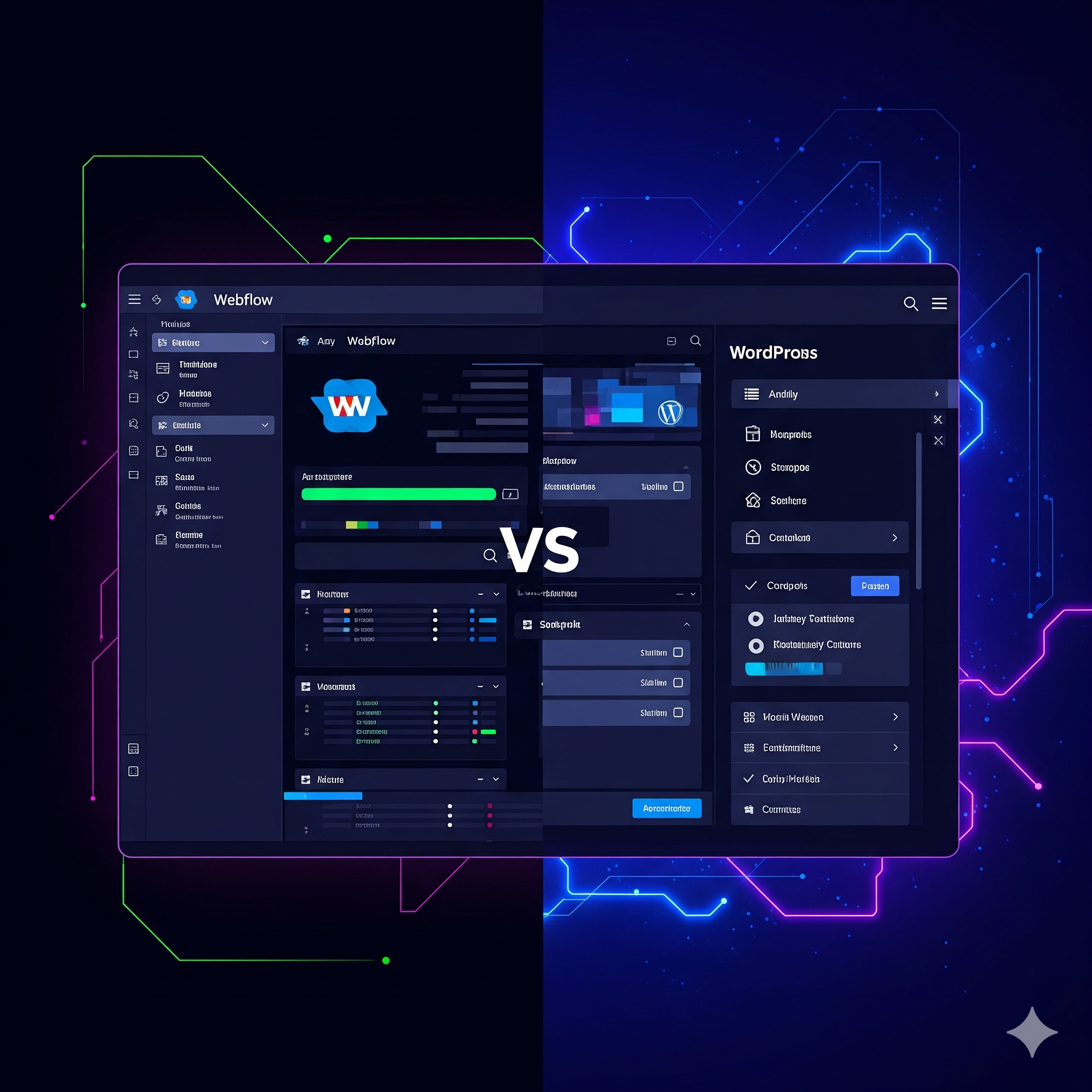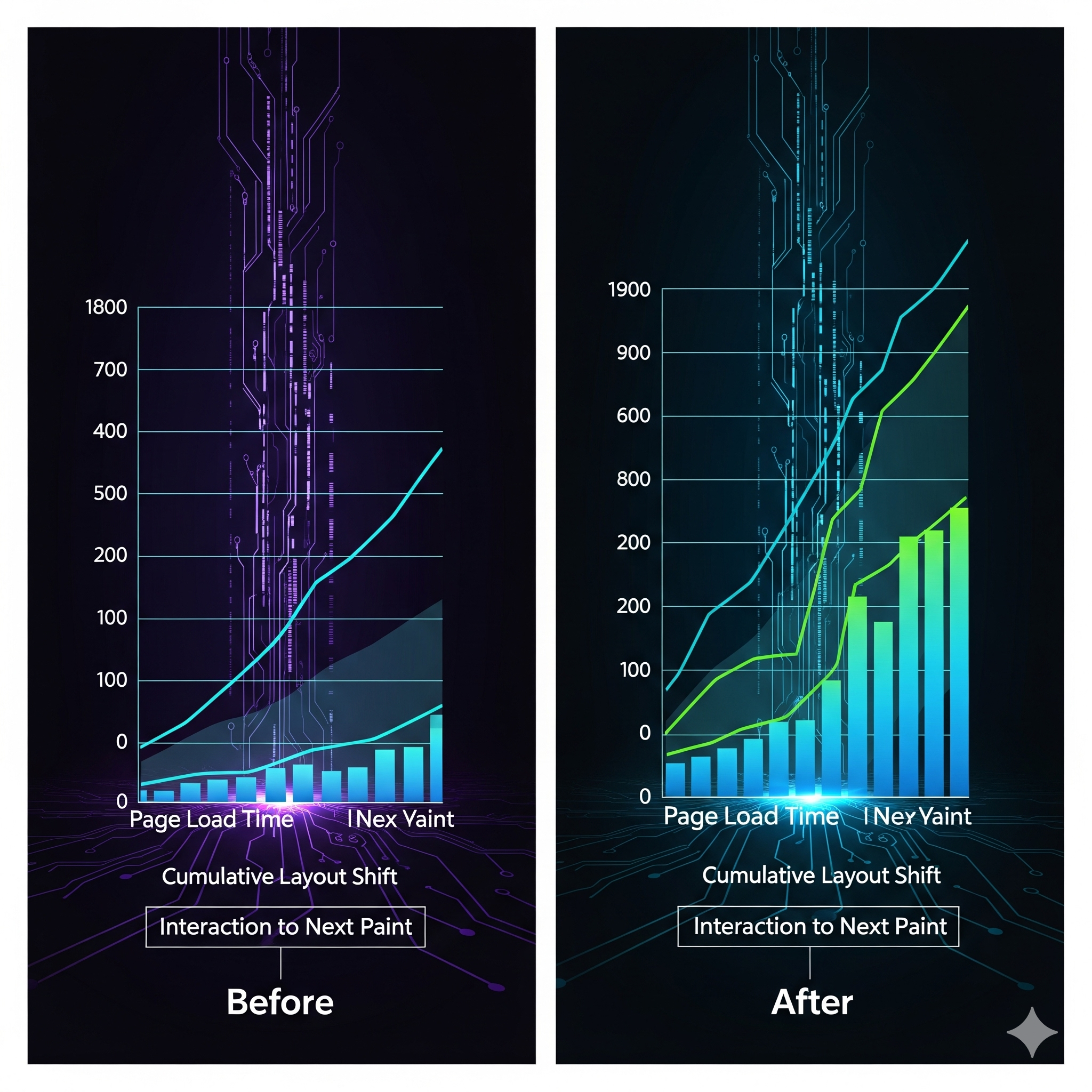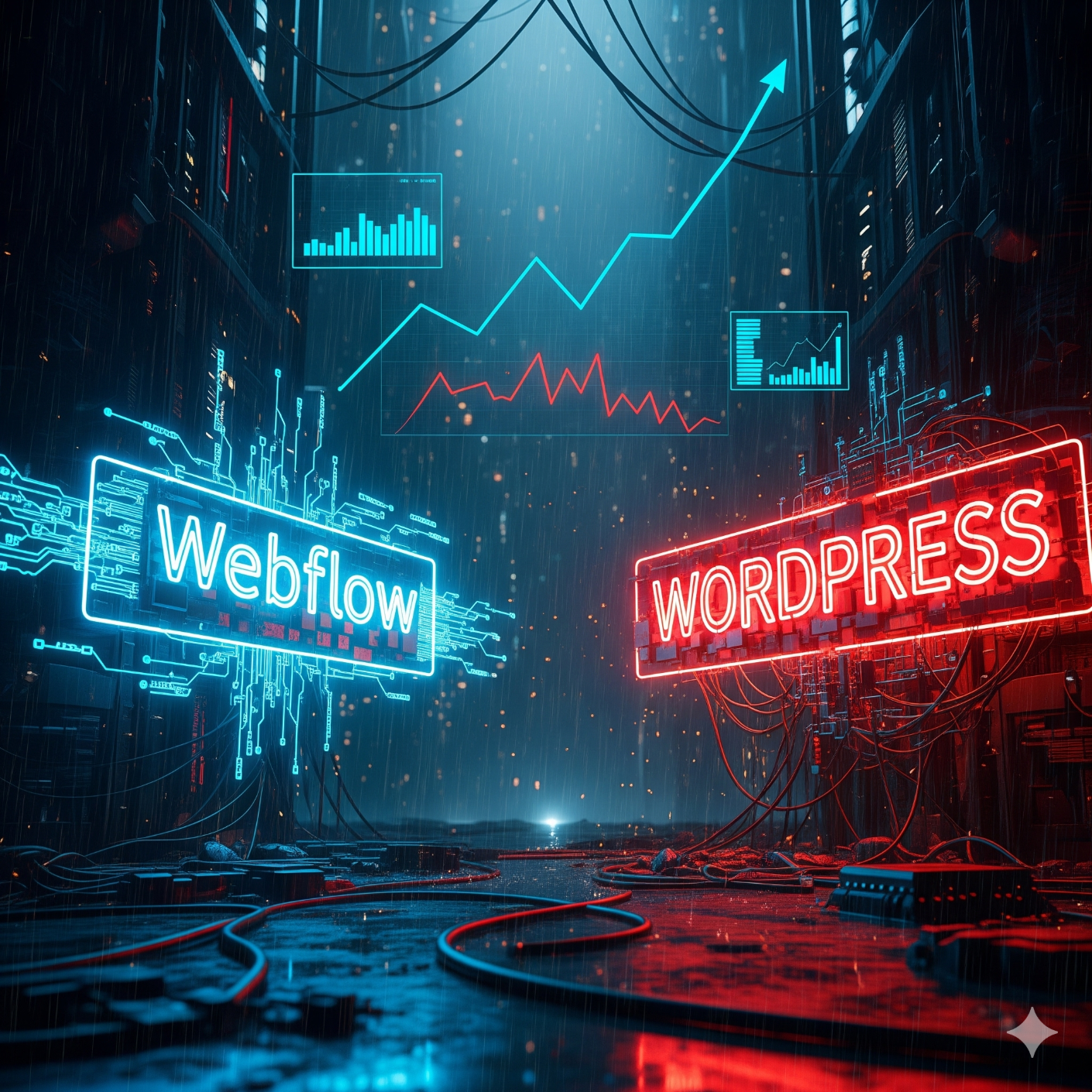Why I Choose Webflow Over WordPress for Performance-Critical Projects
After building websites for over 15 years, I've had the opportunity to work with almost every major web development platform available. From hand-coding static HTML sites in the early 2000s to managing complex WordPress installations, I've seen the web development landscape evolve dramatically.
Today, when clients come to me with performance-critical projects, websites where every millisecond of load time matters, I consistently recommend Webflow. This isn't because I'm against other platforms, but because I've learned through real-world experience what works best for specific use cases.
My Journey Through Web Development Platforms

Starting at Orange Cab of Everett in 2009, I built their first website using traditional HTML and CSS. That simple site contributed to a 40% increase in their profits, proving early on that good web development drives real business results.
Later, at Saytaxi Chicago, I designed company websites and marketing materials that helped grow the driver network by 1300%. These experiences taught me that websites aren't just digital brochures, they're business tools that need to perform reliably under pressure.
The WordPress Years
For several years, WordPress was my go-to platform. The plugin ecosystem seemed infinite, and clients loved the familiar dashboard. But over time, I started noticing patterns that concerned me:
- Performance degradation with plugin bloat
- Security vulnerabilities requiring constant updates
- Client sites breaking after routine maintenance
- Complex hosting requirements and optimization challenges
Discovering Webflow's Advantages
When I first encountered Webflow in 2024, I was skeptical. Another website builder? But as I dug deeper into the platform for the Flux Academy Masterclass, I realized this wasn't just another drag-and-drop tool, it was a paradigm shift.
Technical Advantages That Matter

Code Quality and Performance
Webflow generates clean, semantic HTML and CSS. There's no plugin bloat, no unnecessary JavaScript libraries, and no conflicting styles. Every line of code serves a purpose.
WordPress, even with careful plugin selection, tends to accumulate overhead. I've seen sites load 15+ JavaScript files and 10+ CSS files for basic functionality that Webflow handles natively.
Core Web Vitals Optimization
Google's Core Web Vitals have become crucial ranking factors. Here's where Webflow excels:
Largest Contentful Paint (LCP):
- Webflow's CDN delivers optimized images globally
- No render-blocking plugins to slow initial paint
- Built-in image optimization and responsive delivery
Cumulative Layout Shift (CLS):
- Webflow's visual editor prevents unexpected layout shifts
- No plugin-injected elements that load asynchronously
- Consistent rendering across devices
First Input Delay (FID):
- Minimal JavaScript overhead
- No competing plugin scripts
- Clean event handling
Client Experience and Maintenance

Easier Client Handoffs
When I deliver a Webflow site to clients, they can:
- Edit content visually without breaking layouts
- Add new pages using established templates
- Update images without worrying about sizing
- Make changes without fear of "breaking" the site
Compare this to WordPress, where clients often need training on:
- Plugin management and updates
- Theme customization without code
- Security best practices
- Backup procedures
Predictable Maintenance
Webflow maintenance is straightforward:
- Hosting and security handled by Webflow
- No plugin updates to manage
- No compatibility conflicts
- Predictable monthly hosting costs
My WordPress sites required:
- Regular plugin updates and testing
- Security monitoring and patches
- Performance optimization maintenance
- Backup management and monitoring
When WordPress Still Makes Sense

I'm not anti-WordPress. There are still scenarios where it's the right choice:
Large-Scale Content Operations
- Sites with 1000+ pages of content
- Multiple content editors and complex workflows
- Extensive third-party integrations
- Custom application functionality
Budget-Constrained Projects
- Clients who need the lowest possible upfront cost
- Projects where performance isn't critical
- Sites that will rarely be updated
My Current Approach

Looking Forward
The web development landscape continues evolving. Webflow's recent improvements in e-commerce functionality, advanced animations, and developer tools suggest they're committed to staying competitive.
The Bottom Line
After 15+ years in web development, I've learned that the best platform is the one that delivers results for your specific situation. For performance-critical projects where maintenance simplicity matters, Webflow consistently outperforms WordPress.
The proof is in the metrics: faster load times, better Core Web Vitals scores, happier clients, and more predictable maintenance costs.

Call to Action
Is your current website holding back your business performance? Let's discuss whether a Webflow migration could improve your site's speed, reliability, and search engine rankings.


